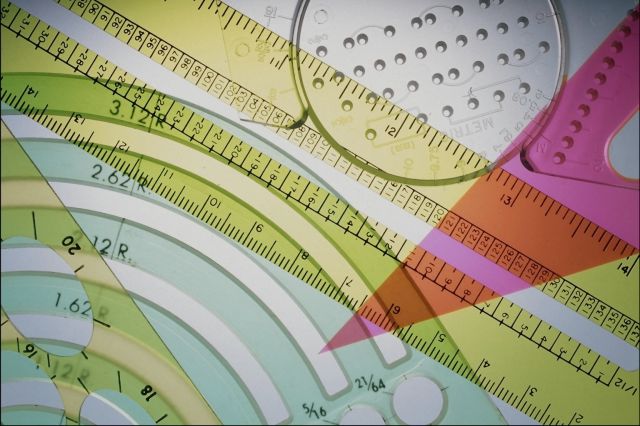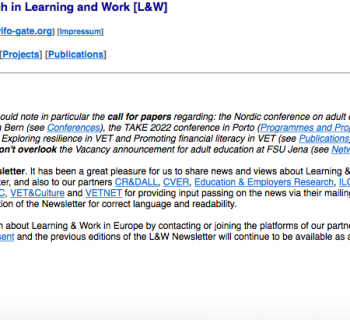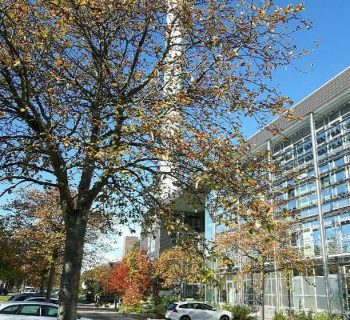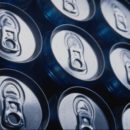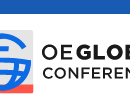Today we heard the sad news that our former colleague (and long-time Visiting fellow of our institute ITB) Hans-Dieter Höpfner has passed away. To me this is striking, since I have just blogged about the historical events of 1989 (when the political system of former DDR collapsed) and of 1990 (when the two German states were unified). To me, my first encounter with Hans-Dieter was very much linked to these events. I first time met Hand-Dieter at the conference Hochschultage Berufliche Bildung in October 1990 in Magdeburg and got immediately acquainted with him. Then, with several irregular intervals our paths crossed time and again - and we were always happy to meet again and to catch up since the last time. Now, it is my turn to summarise my memories and to pay my respects to the nice colleague whom we have lost.
Meeting during the turbulent times of the year 1990
My first encounter with Hans-Dieter was a chance meeting. We were both participating in the Cedefop-led workshop at the conference in Magdeburg 1990 (Hochschultage Berufliche Bildung). I ended up being a last-minute addition to the program - as a speaker coming from the Nordic Countries, recommended by my earlier acquaintances from the Federal Institute for Vocational Training (BiBB) of West Germany. Hans-Dieter attended as one of the comparative and international researchers of the East-German Central Institute for Vocational Training (ZIB).
I was taking my first steps towards a career as a European and international researcher (coming from the remote Finland that was not yet an EU Member State at that time). Hans-Dieter was experiencing a rupture period - knowing that the institute for which he had worked would be closed and that he would not be one of those to get transferred to BiBB. So, there we were - two people with such different life situations - sitting next to each other during the workshop and then getting acquainted with each other. Already at that time I knew that Hans-Dieter would overcome the hard period and get along with the transition. What he told me about his background - being a specialist in psychology of work and work-related learning (and coming from the well-known Dresden-based school led by Winfried Hacker), I knew that he has the kind of expertise that is needed during the societal transformation of East Germany. This all turned out to be very true.
Meetings during the Modellversuch Schwarze Pumpe
Our next encounters were no longer such chance meetings but rather something to be expected. I had made further steps on my career path and had been sent in 1994 as a national seconded expert to Cedefop (European Centre for the Development of Vocational Training) - at that time located in Berlin. In the meantime I had had cooperation with ITB (Institut Technik & Bildung) and I had learned of their involvement in an experimental innovation project (Modellversuch - MV) with dually qualifying apprentice training at the brown coal site Schwarze Pumpe. With this background knowledge I was eager to participate in the annual Workshop of the MV Schwarze Pumpe in 1995. And there I met once again Hans-Dieter, who was part of the accompanying research (Begleitforschung) team together with Gerald Heidegger and Rainer Bremer who were old acquaintances from ITB. This event was inspiring since the apprentices from two trades were invited to present their joint working and learning project - constructing a fully working miniature model of the bricket-producing machine. This was a clear demonstration of participative, collaborative and shaping-oriented learning of the apprentices.
At a later phase Cedefop had been relocated to Thessaloniki, Greece and I had got a temporary contract as an EU-employed project manager. In this capacity I had taken the task to monitor (or accompany) parallel EU-funded R&D projects with similar educational ideas and working concepts. From this perspective I was happy to include the projects Post-16 strategies and Intequal (both dealing with dually oriented qualifications) into my list of projects to be accompanied. And indeed, ITB was a partner in both projects with the MV Schwarze Pumpe as a national case (to be examined from different perspectives. So, I had the chance to visit the site Schwarze Pumpe time and again. Once I visited an interim conference that assembled several German innovation projects with focus on dually oriented qualifications. And the then with the concluding conference I had brought a European delegation to attend the conference and to have an international workshop on the theme of the innovation project. Every time I was pleased to catch up with Hans-Dieter.
Meetings as researchers affiliated with the ITB
Later on, our paths went to somewhat different directions. During my last years in Cedefop I had less field visits and in 2002 I returned to Finland. Then, after some time, in 2005, I got a new chance to engage myself in European and international projects - now as a contracted researcher of ITB. In the meantime Hans-Dieter had found his way to international development aid projects as an expert on vocational education and training (VET). He had a remarkable experience with the societal transformation in East Germany and in adjusting the VET provisions to market economy. With this know-how he was considered as a prominent expert by the development aid agencies of German-speaking countries that had projects in former Soviet republics. And strangely enough, we had both been acknowledged with the status of Visiting fellow of ITB. (For me, this was only an interim phase, since I got employed by ITB, whilst for Hans-Dieter this was a matter of maintaining the working relation with ITB.)
So, once again we had our chances to catch up with Hans-Dieter, mainly during the annual meetings of the advisory board (Beirat) of the ITB. On such occasions we had the chance to refresh our memories of earlier times and inform each other of our newer activities. Hans-Dieter had experienced all kinds of things in the faraway countries in which he had worked and we were keen to learn more of his experiences. Also, he was interested to find out what we were doing and how we were doing - in Germany, in our EU projects and in our international projects.
And most of all, Hans-Dieter was popular as a story-teller - whatever the subject matter. For me, as a Finn, it was interesting that one of his favourite authors was the Finnish humourist Arto Paasilinna. It was such a pleasure to share impressions of Paasilinna's writings - be it the Year of the Rabbit or the Nine Buildings or whatever.
Now we have lost the fine colleague, but his memory lives with us.
More blogs to come (with newer topics, I hope) ...

